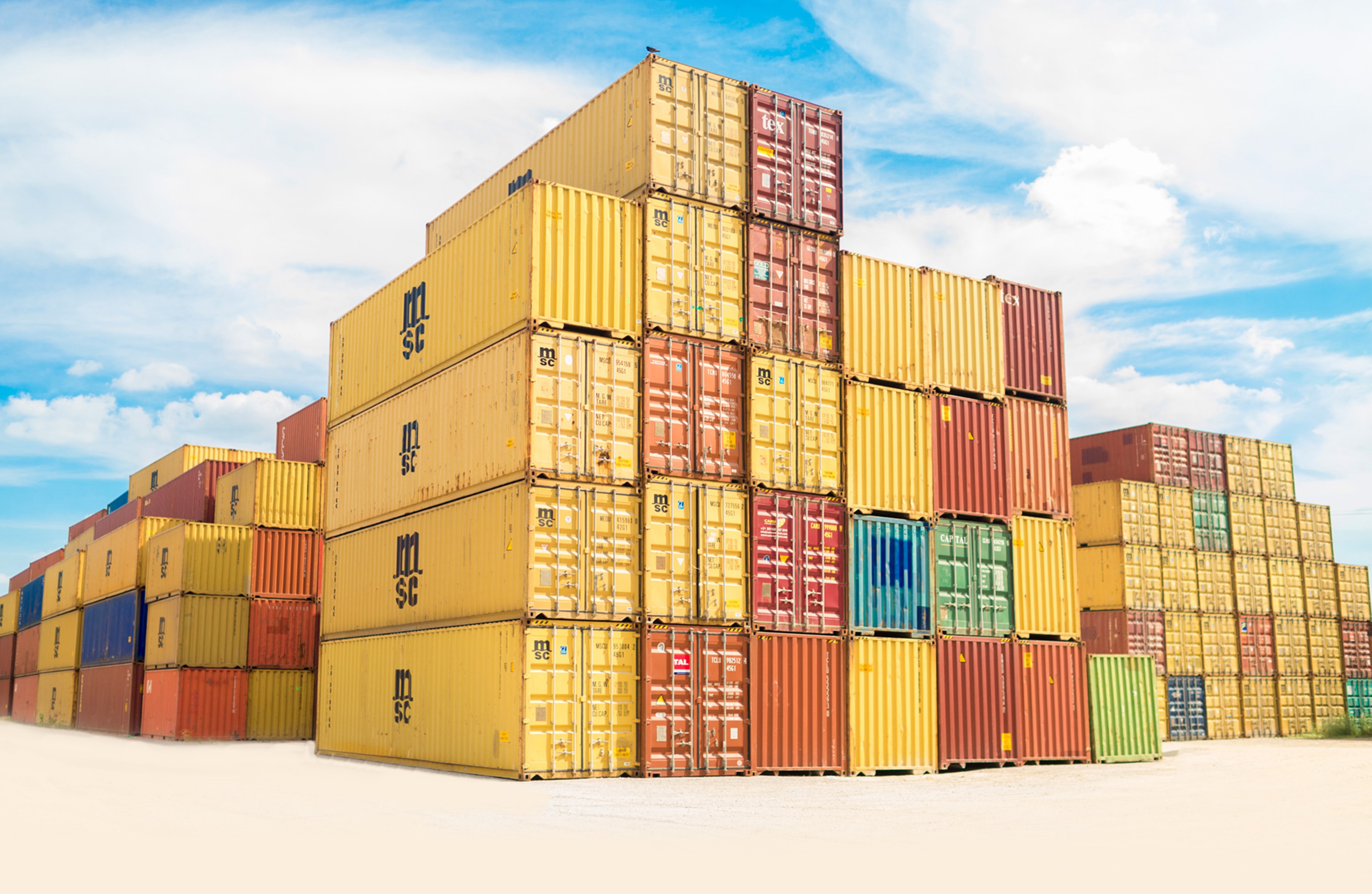The Technology That Will Dominate the Logistics Industry

Many recognize that blockchain has been associated with cryptocurrencies since its inception. Nevertheless, the possibilities blockchain may have on transportation and logistics is capable of significantly changing the entire industry and how it operates.
The Basics
To understand the possibilities blockchain may offer we have to understand the technology, so first let’s cover come basics.
When you hear about blockchain, you probably think of new, high-emerging tech. Well, blockchain really is just a combination of technologies that have existed for a long time. They're simply combined in a new and creative way to give us an amazing new platform on which we can start to build solutions. Blockchains are often referred to as digital decentralized ledgers, which are essentially something we're all familiar with: a simple notebook. When we refer to blocks and blockchain, all we're really talking about is a page of data. We fill up this page with all kinds of information; while most of the time it pertains to recording financial transactions on the page, ledger or block, there are limitless types of data that we can record. In fact, you can think of a block as being exactly like this page in that the paper doesn't know or care what kind of information you're adding to it. The same is true for the block in a blockchain. In other words, while most of today’s records involve financial transactions, the possibilities include voting and results, land titling, medical records, or the opening notes to a Beethoven symphony. What makes this blockchain notebook incredibly powerful is that all the pages are linked together; if I go back and change data anywhere in the notebook, I break a link in an obvious and easy-to-determine way. This gives blockchain a key property known as immutability. It's what gives blockchain the security that we've come to know and depend on. Blockchains also give us an incredible technology called smart contracts, which allow us to programmatically define the rules and steps that should be performed any time a certain type of event is recorded in our blockchain, our magic notebook. So, don't get intimidated with blockchain, with a notion that it's high tech, and cutting-edge. It's simply a new and creative way of combining old ideas together to give us an incredible new solutions platform.
How this Impacts Logistics and Supply Chain
The logistics and supply chain industry involves many stakeholders including manufacturers, shippers, freight forwarders, storage facilities, and customs authorities. Across these entities, there is a continuous flow of information and products. Accurate data is needed to track ships, available space, containers, mishandling or damage to the product, counterfeiting and customer records. Financial, security, insurance, and contract data flow with the goods so that materials move successfully from manufacturers to suppliers to end-consumers. These are some serious data requirements. Any mistakes in the tracking and coordination of the information can lead to problems. Blockchain technology can provide fresh solutions to improve current processes, reduce costs and improve transparency of the supply chain.
An increasing demand for transparency, speed, and interconnectedness exists in logistics, because we live in a global economy where information never stops flowing and supply chain data must always be available. Customers, organizations, businesses, and governments demand specific information for their requirements.
Modern supply chains are extremely complex. Tracking a product’s journey from start to the last mile can be challenging. Traditional methods that are manual and paper-intensive are falling short to the pace and service requirements of the internet and mobile devices. This reality has forced the shipping and logistics industry to search for new technologies to keep up with demand.
Real World Examples
In the last four years we’ve seen a sporadic rise in startups leveraging blockchain. Below you will find examples of startups encompassing different areas of the logistics sector.
Australian-based Ambrosus leveraged blockchain in a creative manner, by building an end-to-end IoT network for the food and pharma supply chain sectors. The network provides tools to analyze the data transferred between the sensors, distributed ledgers, and databases for optimizing the supply chain. The platform offers accurate tracking of shipments throughout the supply chain, thus ensuring the quality and authenticity of products by leveraging blockchain technology.
The US-based startup Steamchain offers a blockchain platform that simplifies payment processes using its World Trade Logistics (WTL) smart contract system. WTL smart contracts enable B2B payments and prevent fraud by providing an immutable record of all transactions (Remember the introduction, all blocks (pages) are linked together; therefore, if a block is broken it’s easy to determine). WTL smart contracts help in minimizing currency fluctuation costs, in addition to eliminating the costs of currency conversion.
Lastly, the US-based startup ShipChain builds a logistics platform that leverages blockchain technology to support the end-to-end shipping process. The platform allows all stakeholders to track shipment locations at every step of its journey. The platform also updates information regarding the estimated delivery times using encrypted public ledgers. The photocopies of documents are uploaded into the platform after the delivery is complete, thus increasing visibility and transparency of goods in transit.
Conclusion
Companies are increasingly trying to integrate blockchain into their organization. Jean-Philipe Courois, VP for Microsoft, commented on this evolving technology saying, “Blockchain is really exciting technology because it's actually providing both transparency but also agility in a contractual relationship that any organization should have.” Hopefully by now the message is clear: blockchain has disruptive power as the internet had back in the day. We've only seen the tip of the iceberg.


